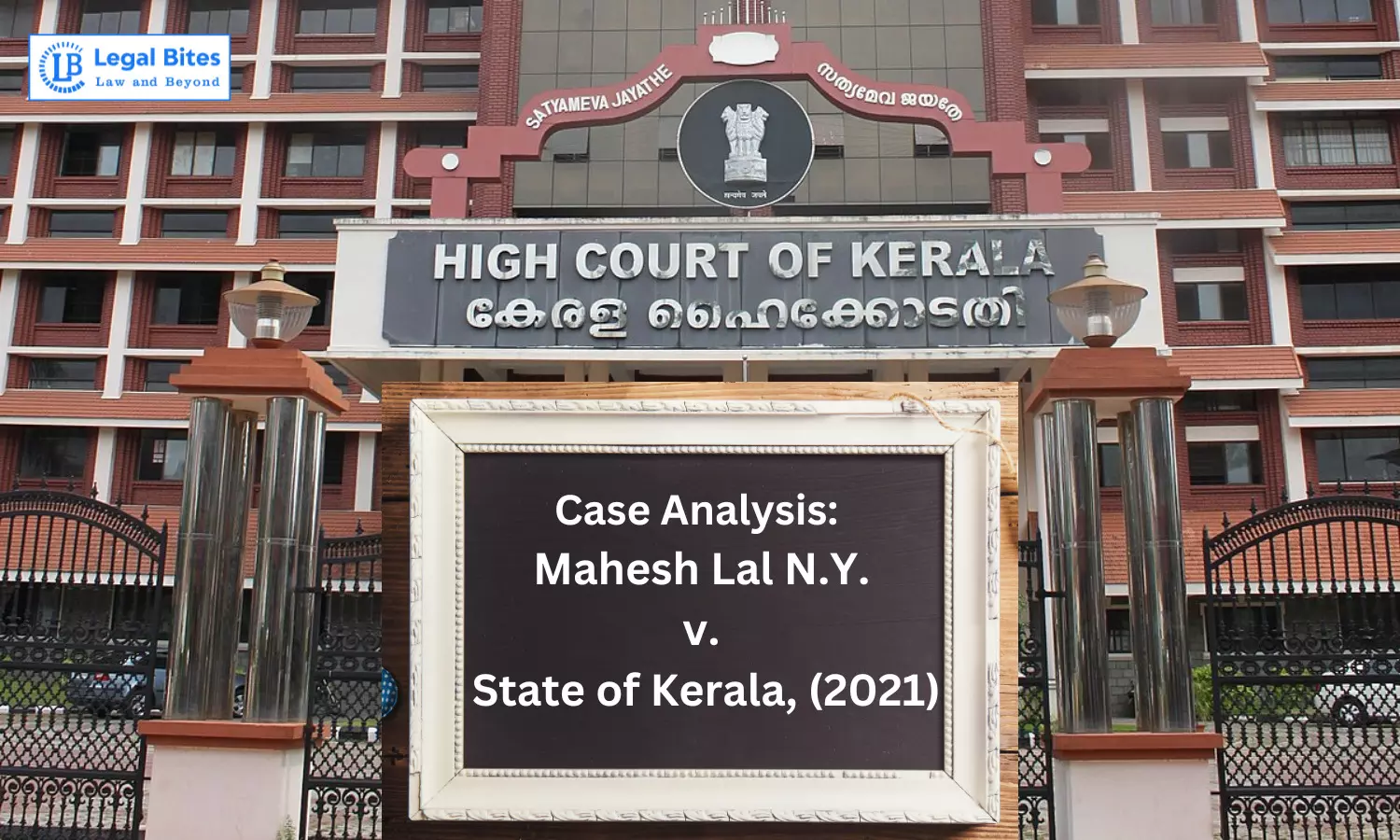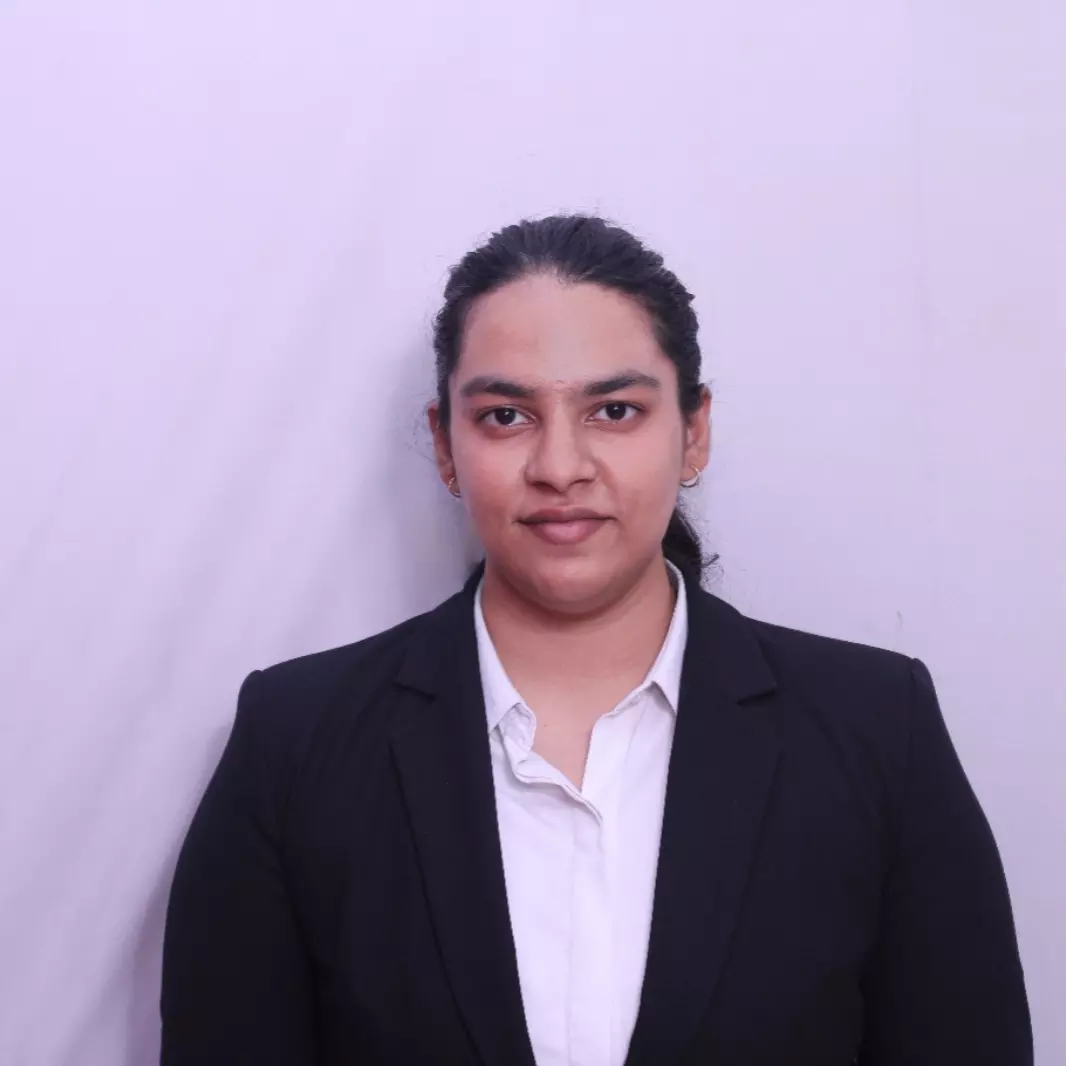Case Analysis: Mahesh Lal N.Y. v. State of Kerala, (2021) | To give a voice sample for the purpose of comparison does not violate Article 20(3) of the Constitution
The Case Analysis 'Mahesh Lal N.Y. v. State of Kerala' by Sukriti Verma is the study of the case dealing with the constitutionality of recording of voice sample of the accused.

The Case Analysis 'Mahesh Lal N.Y. v. State of Kerala' by Sukriti Verma is the study of the case dealing with the constitutionality of recording of voice sample of the accused. It starts with an incident relating to Corruption in the Choondal Village of Thrissur, Kerala. In this case, the High Court of Kerala at Ernakulam was asked to quash a notice of summon of recording voice sample contending that the same is violative of Article 20(3) of the Indian Constitution.Court: High Court...
The Case Analysis 'Mahesh Lal N.Y. v. State of Kerala' by Sukriti Verma is the study of the case dealing with the constitutionality of recording of voice sample of the accused. It starts with an incident relating to Corruption in the Choondal Village of Thrissur, Kerala. In this case, the High Court of Kerala at Ernakulam was asked to quash a notice of summon of recording voice sample contending that the same is violative of Article 20(3) of the Indian Constitution.
Court: High Court of Kerala
Decided by: Justice R. Narayana Pisharadi
Citation: CRL.MC NO. 3358 OF 2021
Date of Judgment: 30 November 2021
Facts
- The petitioner was a public servant working as an overseer in the Choondal Grama Panchayat. He was the second accused in the case V.C. No. 3/2021/TSR by the Vigilance and Anti-Corruption Bureau (VACB), Thrissur.
- In that case, the first accused was charged under section 7A of the Prevention of Corruption Act, 1988, and section 120B of the Indian Penal Code (IPC) for demanding Rs.25,000/- from the complainant.
- The petitioner was charged under section 7(a) of the Prevention of Corruption Act, 1988, and section 120B of the IPC.
- The petitioner was given a notice of summon for recording his voice sample by the Court of the Enquiry Commissioner and Special Judge (Vigilance), Thrissur for testing.
- The petitioner appealed under section 482 of the Code of Criminal Procedure, 1973 against this notice, for quashing the same.
- The appellant contended that firstly recording his voice sample was violative of Article 20(3) of the Indian Constitution. Secondly, he contended that he was served with the notice without giving the opportunity of being heard.
Issues Involved
- Whether recording of the voice sample of the accused is violative of protection guaranteed under Article 20(3) of the Constitution of India.
- Whether the opportunity of being heard should be given to the accused by the Court before serving him a notice for summoning for the recording of his voice sample.
Laws Applied
Legal provisions
Section 7(a) of the Prevention of Corruption Act, 1988 says that any public servant that obtains or accepts or tries to obtain an undue advantage with the intention of performance of public duty improperly.
Section 120B of the IPC is the punishment for Criminal Conspiracy. According to Section 120B of IPC,
1) Whoever is a party to a criminal conspiracy to commit an offence punishable with death, 2[imprisonment for life] or rigorous imprisonment for a term of two years or upwards, shall, where no express provision is made in this Code for the punishment of such a conspiracy, be punished in the same manner as if he had abetted such offence.
(2) Whoever is a party to a criminal conspiracy other than a criminal conspiracy to commit an offence punishable as aforesaid shall be punished with imprisonment of either description for a term not exceeding six months, or with fine or with both.
Whereas Article 20(3) is the right of the defendant against self-incrimination. According to Article 20(3),
"No person accused of any offence shall be compelled to be a witness against himself".
And Section 482 of the CrPC talks about the inherent powers of the High Court. According to Section 482 of CrPC,
"Nothing in this Code shall be deemed to limit or affect the inherent powers of the High Court to make such orders as may be necessary to give effect to any order under this Code, or to prevent abuse of the process of any Court or otherwise to secure the ends of justice.
Judgment
The High Court while deciding the first issue referred to the Apex Court's Decision in Ritesh Sinha v. State of Uttar Pradesh, AIR 2019 SC 3592, wherein it was held that the recording of voice samples of the accused is not violative of Article 20(3) of the Indian Constitution. The Apex Court also stated that "a Judicial Magistrate must be conceded the power to order a person to give a sample of his voice for the purpose of investigation of a crime." And this shall continue to remain valid until the parliament enacts explicit provisions regarding the same.
While deciding the second issue of giving the opportunity of being heard, the High Court said that this isn't required because the accused's consent isn't required. If it was required then his view would have been important for taking his voice sample. As per the above issue as recording a voice sample isn't violative of Article 20(3) therefore his consent isn't required.
The Court also referred to the case of Daisy v. State of Kerala [2020 (3) KHC 115], wherein it was stated that
"Since the direction of the court below was on a request made by the investigating agency in the course of an investigation and in the absence of any legal bar, the Court below was not expected to issue notice to the petitioner."
The mobile phones seized during the investigation had the details of the conversation between the complainant and the Accused therefore the recording of the voice samples of the Accused was necessary to rectify and match the voices.
Another reason that was stated by the court for not quashing the said notice was that the notice was issued by the office of the Special Court, which was based on the order dated 22/07/2021 and this order wasn't produced before the High Court by the accused.
Therefore, the Court dismissed the petition and directed the said sample to be collected.
Conclusion
It can be concluded that the recording of voice samples of the accused is integral to the investigation and the investigation is done properly and is necessary to impart justice rightly. The petitioner's right to protection against self-incrimination is not infringed by the recording of the voice sample of the accused. Another way of seeing it is that the nation's interest is greater than the interest of the individual.
Important Links
Law Library: Notes and Study Material for LLB, LLM, Judiciary, and Entrance Exams

Sukriti Verma
Sukriti Verma is a Law Student at VIPS, New Delhi. She has published several articles and papers under her name and has interned dedicatedly at various prestigious law firms. She believes learning is a life-long process.
